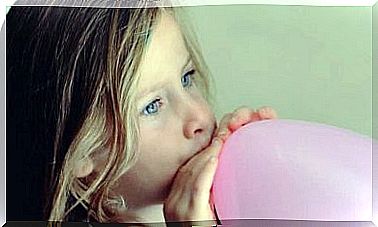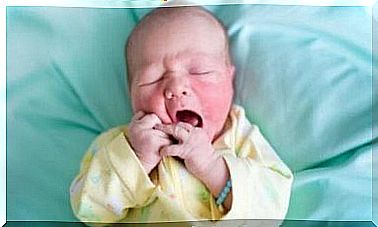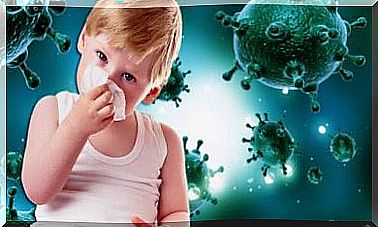Measles In Children: Symptoms, Treatment And Preventive Measures
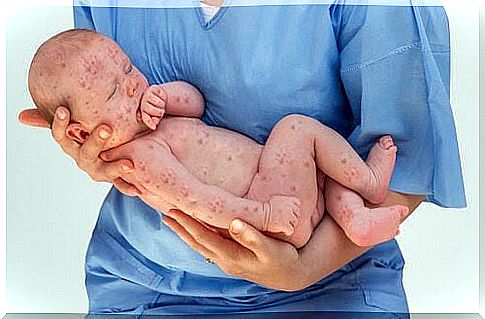
Measles is one of the most contagious diseases a child can get. Even if measles vaccine is available, we still want to provide important information about this serious disease.
Measles is a viral disease. It is highly contagious because the virus moves through the air when a person coughs or sneezes. The disease can also be spread through the eyes, mouth and ears.
Specialists estimate that 90% of those who come in contact with an infected person are infected with the disease. Of course, these statistics only refer to those who have not been vaccinated.
Measles in developed countries such as Sweden usually does not have too serious consequences. Rather, it usually just means that you feel general discomfort for a few days.
However, it is easier for children than for adults to become completely healthy. Adults can get bigger complications, and that is one of the reasons why vaccination is so important.
Symptoms of measles in children
If any of the symptoms below appear, it is important that you exercise extreme caution and seek medical attention immediately. Symptoms usually occur between 8 and 15 days after exposure to the virus.
The disease is notifiable. That is, you must notify your child’s school or preschool and health center as soon as you notice the symptoms so that other parents can prepare for the fact that their child may have been infected.
- Fever.
- Koplik’s stains. These are small white spots that appear on the oral mucosa. They look like grains of salt and appear 3 days before the larger, red skin rashes appear.
- Cough.
- Mucus.
- Eye inflammation or conjunctivitis.
- Muscle aches.
- Sensitivity to light.
- Skin rash. The rash associated with measles occurs as small red spots on the skin. It starts around the head and then spreads to the rest of the body from top to bottom.
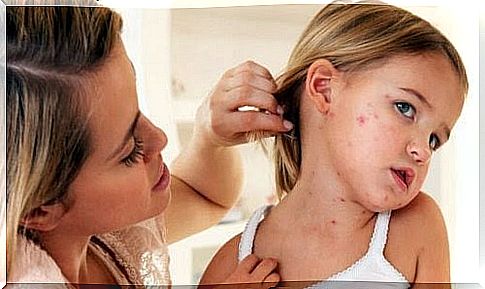
Complications associated with measles
We will now address some of the possible complications that can occur with measles, but remember that they should not affect your child as long as you follow your doctor’s recommendations and your child is not overexposed to other infections.
Possible complications of measles are:
- Otitis.
- Diarrhea.
- Bronchitis.
- Pneumonia.
- Very severe cases of measles can result in encephalitis or encephalitis. Encephalitis is when the brain swells up. It is very dangerous and can cause irreversible damage.
Treatment and preventive measures
There is no specific treatment for measles. However, there is treatment for the associated symptoms.
Measles is a viral infection, so antibiotics have no effect. Your pediatrician will give your child medicine to lower the fever and a cream to relieve the itching.
Try to prevent your child from itching on the rash as much as possible, as it can cause sores that turn into scars. It’s not easy, but with a little patience it works.
Encourage your child and say that in 2 or 3 weeks the symptoms will be gone. Yes, it is quite a long time, but your child needs to know it to understand.
Vaccination is the most effective way to prevent measles. Although it has surprisingly become a very controversial issue today, the World Health Organization strongly recommends following the vaccination program. It is the best way to protect your child not only from measles but also from many other life-threatening diseases.
The vaccine that protects your child against measles is part of a triple vaccine that also protects against mumps and rubella. This vaccine consists of 2 doses that your child receives after their first birthday.
Tips for parents
Here are some more suggestions for parents whose children suffer from measles:
- Do not give your child medicine without a prescription from a doctor. Medicating your child without knowing for sure what your child is suffering from can be very dangerous. Take your child to a doctor and describe your son’s or daughter’s symptoms.
- Do not get angry at your child for tearing the rash. The itching can be unbearable, and it is difficult for children to understand that it is better not to tear. Be patient with your little one and try to find ways to relieve the itching.
- Make sure you have been vaccinated against measles yourself, if you have not already had measles at some point in your life. If you become ill, you cannot take care of a sick child at the same time. So take care of your own health as well. If you are not sure, talk to your doctor and go through your vaccine registry. If you are not protected, you can get measles again and then you have to be extremely careful because the disease is very contagious.
Above all, we encourage you to have a lot of compassion and understanding for your child. Give him or her all your attention. Many times a parent’s love, support and understanding is all a child needs.

